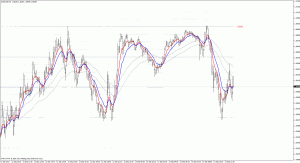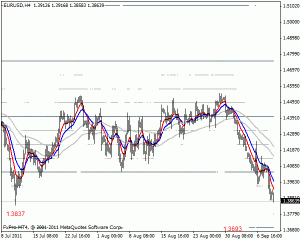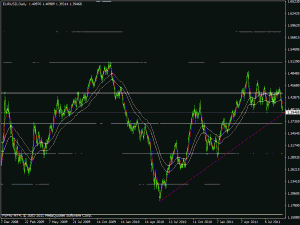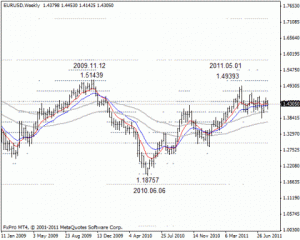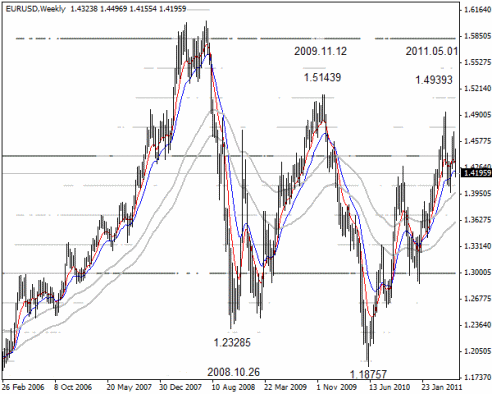One of the key catalysts for Wednesday’s market rout which originated in Europe came following news that Chinese banks had cut down on their credit lines to Europe, which highlighted the key threat to the European banking system: access to liquidity. The Chinese reaction is merely a symptom of a much deeper underlying ailment: the increasing lack of counterparty confidence across various funding markets, both traditional and shadow, which has continued to accelerate over the past week, a development summarized effectively by the latest report in the International Financing Review which uses some powerful words (of the type that European bureaucrats hate) to explain where Europe stands right now: “credit taps run dry for European lenders, setting scene for liquidity crisis.” For those strapped for time the take home message is that: “with bond markets shut and investors unwilling to buy asset-backed securities, the repo market – for some banks the sole remaining source of private funding – has become the most recent tap to run dry, with some investment banks pulling credit lines worth tens of billions of euros in recent weeks.” This is very disturbing as with liquidity windows shut, Europe’s bank have no recourse on how to roll the €4.8 trillion in wholesale and interbank funding which expires in the next two years. End result: the only recourse is the ECB, which unlike the Fed, is not suited to be a lender of last resort and has been morphing into that role over the past year kicking and screaming. And when that fails, there are the Fed’s liquidity swap lines. Too bad that the liabilities in the European banking system are orders of magnitude bigger than in the US, and should this liquidity crisis transform into its next and more virulent phase, even the Fed will find it does not have enough capital to prevent a worldwide short squeeze on the world’s carry trade funding currency (once known as the reserve currency).
First, IFR summarizes briefly how the last ditch liquidity conduit, repo, has now run out. The fact that even shadow banking system aggregates, or those entirely off the books, are being withheld, is very disturbing:
Bankers who once ran the now-defunct repo facilities for mid-sized European banks say the credit lines were withdrawn after risk managers became concerned about their own exposure to the enfolding sovereign debt crisis, leaving some clients now solely reliant on central banks for cash.
“Given what’s going on in the markets, there are big question marks surrounding some of these clients,” said one banker who has closed such lines. “The appetite from investment banks is fading. There is a great deal of concern about financing wrong-way collateral.”
“Many of the wholesale banks are starting to rethink these credit lines,” added the global markets chief of one European investment bank heavily present in the repo markets. “Things can turn pretty nasty if you get these things wrong.”
This is further distressing since the traditional venue of capital raising in Europe, covered bond issuance has ground to a halt, with not “a single publicly announced European covered bond deal since June.”
The culprit for the market freeze is quite simple to anyone who recalls the state of the markets in late 2008 and early 2009, when the Fed and the central bank cartel will had the option of backstopping the global financial system.
“Everyone has been cutting off their exposure,” said the head of another European investment bank. “It started with Greece, then Spain and now Italy. People don’t want to do business with these banks. Many of them have good underlying businesses but they are stuffed.”
At his point however, the global central bank intervention has not already occurred but is actively priced in at any given moment. There is no step function of additional liquidity that the central bankers can provide, which is why the status quo is scrambling so hard to avoid a quantum leap in the risk perception of European banks.
Another indication of the unwillingness to participate in the market is the complete elimination of crap collateral from tri-party repo lines:
The latest repo markets survey by the International Capital Market Association indeed shows a marked pick-up in the use of riskier assets in European tri-party repo deals. Though small as a proportion of the region’s entire €5.91trn repo market, the use of assets with a rating of below BBB– accounted for 5.1% of all transactions in December, up from 1.2% a year earlier.
That has now largely stopped, say bankers once heavily involved in such deals. Previously, they were able to hedge their exposures to such collateral – or repackage the collateral on behalf of clients to sell off in chunks to fund managers. But growing investor concern, and a rush towards safer assets, has meant that neither investment banks nor investors want to go near the stuff.
“We’ve attempted to do some trades with illiquid assets on behalf of peripheral banks, but we haven’t managed to syndicate deals,” said one senior banker that helped repackage some past deals. “Anything slightly peripheral-orientated is completely out of the question right now.”
What is, however, bad for banks, is perfectly good for the ECB, which will gladly hand over 100 cents on the dollar for the most worthless collateral it is stuffed with. There is one problem with this: Lehman did precisely this in the days and weeks before it filed. It did not help.
So with the ECB now happy to be Europe’s not-bad but thourughly toxic bank, how long until everyone realizes that the ECB is massively undercapitalized and its existence (yes, that includes its ability to print money), purely a factor of continued German good will.
Total use of the ECB’s main refinancing and long-term refinancing facilities – both part of the open market operations – are now close to €500bn, up from about €400bn in the spring.
According to Goldman Sachs, although such levels are well short of the almost €900bn used in 2009, the uptick is worrying. “This is a substantial figure, reflective of the strains in the banking system,” analysts wrote.
But banks’ use of the ECB open markets operations remains dependent upon them having ample quality assets on their books. Under the terms of the operations, the central bank will only provide liquidity against certain assets – generally those rated BBB– and above, with some exceptions.
If ECB eligible collateral runs out, banks will have little option but to sell off assets in a final fire sale, say bankers. That will depend on whether there are willing buyers for such assets, much of which were accumulated pre-2007 as retail, commercial and wholesale loans.
And as Germany has indicated, it is getting fed up with the ECB pledging what is effectively an ever increasing portion of its GDP either directly, by accepting worthless collateral, or indirectly, by funding an ever greater portion of the AAA-rating constrained EFSF. When does Germany find that the trade off between its sovereign risk and the fate of the EUR no longer makes practical sense.
So what is the conclusion:
“The financial wreckage at many of these banks is along the lines of World War Two,” added the global markets chief. “There is so much detritus. But a lot of them don’t want to sell at these current prices, they know there will be a capital hit if things are properly priced.”
Bottom line: 3 years after Lehman blew up we are in precisely the same position, only this time the culprits are European banks. This is to be expected as absolutely nothing has changed in that time period, and the end result, by implication, will be absolutely the same.

